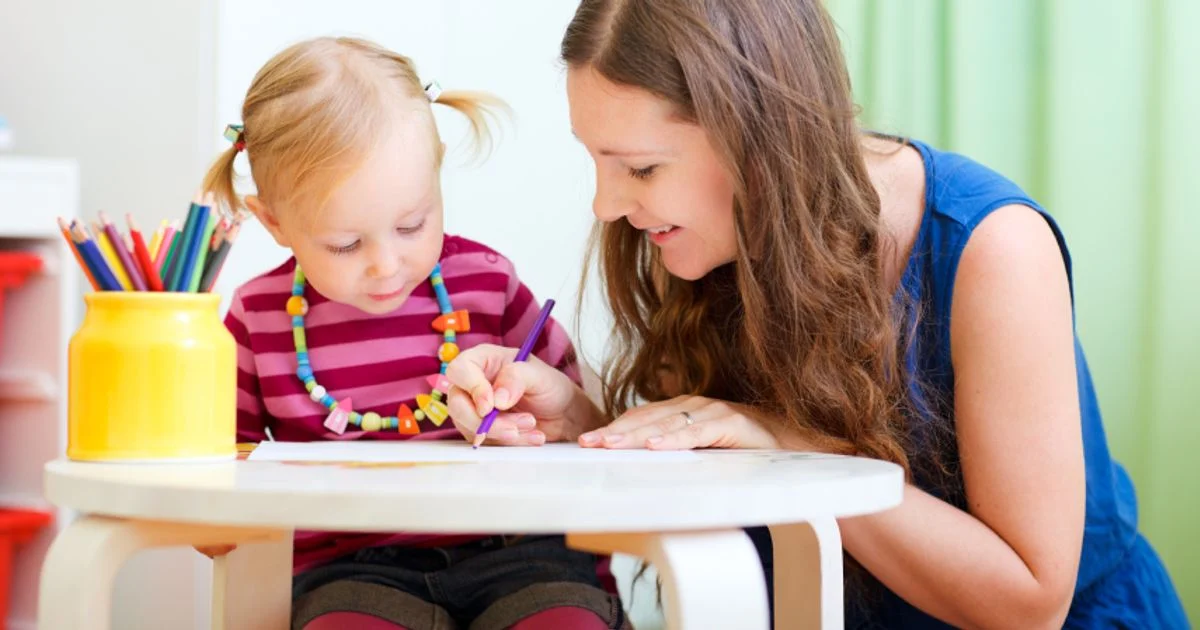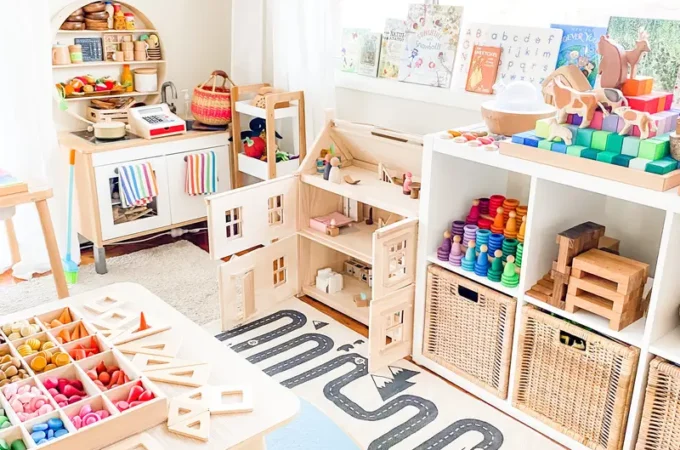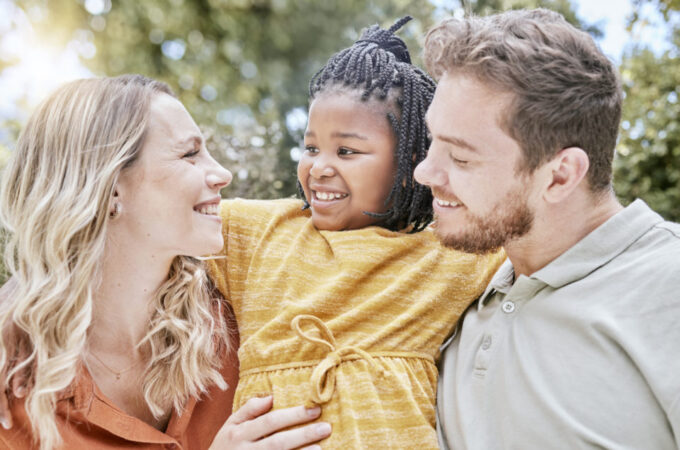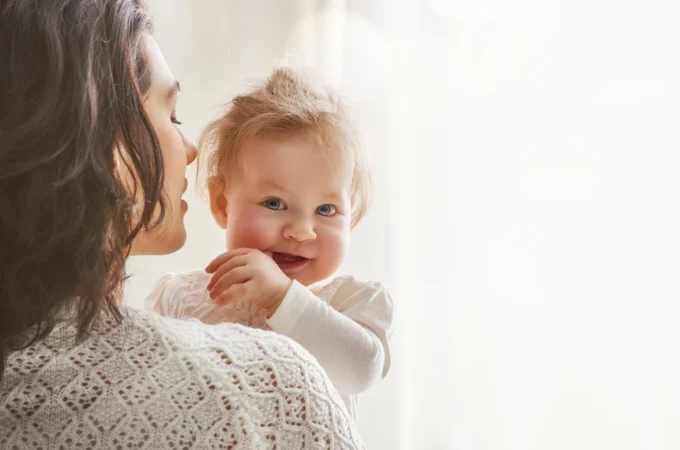
When Your Kids Get Undivided Attention All Day
Picture this: your child wakes up in the morning and there’s someone right there who’s completely focused on them. Not rushing around trying to get three other kids ready at the same time, not checking their phone while half-listening to a story about yesterday’s playground drama, but actually paying attention. Really listening. Really watching. Really caring about what your kid needs in that moment.
This isn’t some fantasy scenario that only happens in perfect parenting books. It’s what happens when children have access to personalized, one-on-one care instead of being part of a crowd. The difference this makes in a child’s day, and honestly in their whole development, is pretty amazing when you think about it.
Table of Contents
ToggleWhat Happens When Someone Really Sees Your Child
Most parents know that feeling when they finally have a quiet moment alone with just one of their kids. Suddenly, that child opens up in ways they don’t when siblings are around competing for attention. They ask deeper questions, share more about their feelings, and just seem more relaxed and confident.
Now imagine that happening all day long. When a child has a caregiver who can focus entirely on them, or maybe just one or two other children at most, everything changes. The caregiver notices when the child seems frustrated with a puzzle before they have a meltdown. They catch the moment when a child’s eyes light up about something new, and they can follow that interest instead of having to move on to manage other kids.
This individual attention means children get responses that are actually about them and their specific needs, not generic responses that work for managing groups. When a three-year-old asks “Why is the sky blue?” they get a real conversation about it, not a quick “That’s just how God made it” because there are twelve other kids who need help with lunch.
The Science Behind Personal Attention
Child development experts have been studying this for years, and the results are pretty clear. Children who receive consistent, focused attention develop stronger language skills, better emotional regulation, and more confidence in social situations. This makes sense when you think about it. If someone is really listening to you and responding thoughtfully to what you say, you’re going to want to communicate more. You’ll get better at expressing yourself because you’re getting practice and feedback.
Kids who experience this kind of attention also tend to be better at focusing themselves. When a child sees an adult giving them their full focus, they learn what that looks like and how to do it. They’re not competing with distractions or other children for that adult’s mental energy, so they can settle in and really engage with activities and conversations.
For families exploring options that provide this level of individual attention, programs such as the Au Pair Program offer structured ways to bring personalized care into the home environment.
The emotional benefits are huge too. Children who regularly receive undivided attention tend to have better relationships with their caregivers and feel more secure overall. They’re not constantly wondering if they’re going to get their turn or if their needs will be noticed and met.
How This Changes Daily Routines
When your child has someone who can focus entirely on them during daily activities, everything just flows better. Getting dressed in the morning becomes a conversation about what clothes feel good and what the weather is going to be, instead of a rushed battle where someone’s trying to stuff arms into sleeves while mentally planning the rest of the day.
Meal times turn into opportunities to talk about flavors and textures, maybe even learn about where food comes from or practice using utensils properly. The caregiver has time to notice if a child is struggling with something and can help them work through it instead of just doing it for them to save time.
Even cleanup time becomes more manageable because the adult can actually teach organization skills and make it feel engaging rather than just commanding everyone to put things away quickly.
Bath time and bedtime routines become calm, connecting experiences instead of efficiency challenges. There’s time for that extra book, for talking about the day, for addressing any worries or excitement about tomorrow.
The Learning That Happens Naturally
One of the biggest advantages of individualized attention is how much learning happens without anyone trying to make it educational. When a child has someone who can follow their interests and answer their questions thoughtfully, they end up learning constantly throughout the day.
A walk to the mailbox becomes a chance to talk about letters and numbers, observe bugs and plants, practice counting steps, or discuss community helpers. A simple activity becomes rich with learning opportunities because there’s an adult available to notice what the child is curious about and expand on it.
This kind of organic learning is often more effective than formal lessons because it’s happening when the child is naturally interested and engaged. They’re not sitting still trying to focus on something that doesn’t interest them while other kids are being disruptive. They’re exploring ideas when they’re ready and excited about them.
Building Confidence Through Individual Recognition
Children thrive when they feel seen and valued for who they are as individuals. When a caregiver can focus on one child’s specific personality, interests, and needs, that child develops a stronger sense of self and more confidence in their abilities.
This happens in small moments throughout the day. When a child shows their caregiver a picture they drew, that adult has time to really look at it, ask questions about it, and celebrate the child’s creativity. When a child is working on a challenging task, the caregiver can provide encouragement and support without being pulled away to handle other situations.
Children who receive this kind of individual recognition tend to be more willing to try new things because they’ve experienced having someone believe in their abilities. They’re also better at advocating for themselves because they’ve learned that their thoughts and feelings matter and will be heard.
The Social Benefits Might Surprise You
You might think that children who spend time in smaller, more individualized care settings would be less socially developed, but research shows the opposite is often true. Children who feel secure and confident from receiving individual attention are actually better at social interactions when they do occur.
They enter group settings with stronger communication skills, better emotional regulation, and more confidence in themselves. They’re less likely to act out for attention because their needs for recognition and connection are already being met. This makes them more enjoyable playmates and helps them build better friendships.
Creating This Environment at Home
The good news is that parents don’t need to completely restructure their lives to give their children more individual attention. Even small changes can make a big difference. Setting aside even 15 minutes a day for one-on-one time with each child, where you’re completely present and following their lead, can have meaningful impacts.
The key is quality over quantity. Children can tell when adults are distracted or going through the motions versus when they’re genuinely engaged and interested. Even a short interaction where a child feels truly seen and heard can be more valuable than hours of half-attention.
When children experience what it feels like to have someone’s undivided attention regularly, they become more secure, confident, and capable. They learn better, communicate more effectively, and develop stronger relationships. Most importantly, they get to be children without having to compete for the basic need of being noticed and cared for by the adults in their lives.

I’m Mathilde Lacombe, a French entrepreneur, beauty industry influencer, and founder of AIME. As a businesswoman and mom of three, I’ve built my career at the intersection of beauty, wellness, and entrepreneurship. Through my journey, I’ve learned how self-care, confidence, and mindful living play a vital role in both personal and professional success.
On this blog, I share insights from the world of beauty, wellness rituals I truly believe in, and honest lessons from building and growing a brand. From entrepreneurship to everyday inspiration, this space reflects everything I love and live by designed to empower women to feel their best, inside and out.


